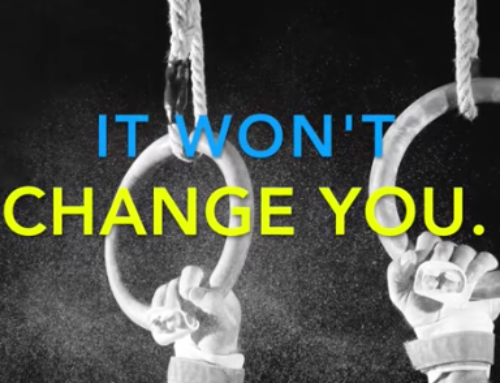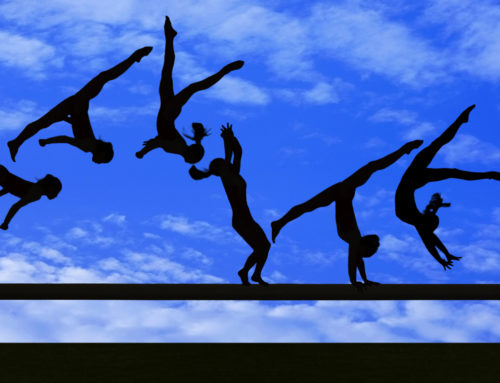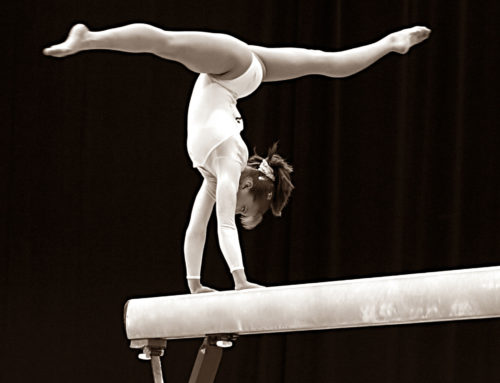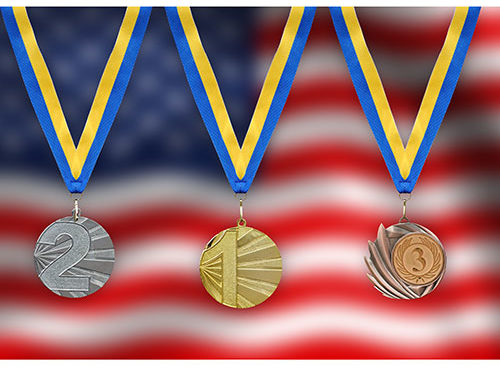GOAL SETTING
Plotting the Course for Your Success
“If you don’t first set a goal, how will you know what to work toward? Setting that goal, whether it is to learn a new skill or win a gold medal at the Olympic games, allows you to create a step-by-step plan to achieve that goal and accomplish your dream.”
Shannon Miller, 7 time Olympic Medalist and 9 time World Medalist.
Do I Need to Do Goal Setting?
How much success do you want? Many athletes achieve some success without using formal goal setting, but virtually every great athlete who consistently wins, uses some form of goal setting. The USOC Sport Psychology program believes that using goal setting is as necessary as having a coach.
How does goal setting help? Like a good coach, a good goal setting gives an athlete an edge in three areas:
1. Direction- Goals tell you where you need to go and how to get there.
2. Feedback- Goals tell you when you are making progress.
3. Support- Goals keep you going when you might otherwise give up.
What happens if I don’t use goal setting? A lot of athletes say, “hey, why should I do goal setting when things are going well?” If things are going well, you may not notice the absence of goal setting right away. It’s when things start going poorly, however, that the athlete who does good goal setting can correct things and avoid a slump. Remember, good goal setting gives you direction, feedback, and support, three important tools when you are trying to avoid a slump.
The other thing to remember is that good goal setting can help you to greater and greater success. As the earlier quote from the Olympic Medalist makes clear, goal setting was critical to his winning a medal. Some athletes are satisfied with a lower level of success, but if you would like to be internationally successful in sport, we believe you do have to use goal setting as a basic training and competing skill.
What is effective goal setting?
Effective goal setting changes behavior. In sports, athlete behavior is the key. A motivational speech is useless unless athletes behave differently because of it. Training a new move for weeks and months is useless unless the athlete uses the move in competition (the athlete’s competition behavior changes). Shaving your head for competition, listening to a tape, watching video of your opponents, are all just wasted time unless they change you behavior in productive ways. The same is true for goal setting. If you think setting goals means sitting down once a year and writing down that you want to be the national champion, don’t waste your time, unless writing that statement down will change your behavior!
Athletes who use goal setting effectively find a number of behavior changes including:
1. Training is more productive, with more done in less time.
2. Competition behavior is more focused, resulting in less nervousness at competitions.
3. They don’t get stuck working on one thing in practice; instead, goal setting helps them to move onto other stuff they need to work on.
Effective goal setting becomes a habit. Like other behaviors that take some effort, goal setting needs to become a habit or it fades away (usually when things seem to be going well). When goal setting becomes an automatic part of your day, it will be most helpful to you.
Effective goal setting pays more attention to the little goals than the big goals.
Question: How many athletes have said to themselves, “I want to win”?
Answer: Every single athlete who has ever lived.
Setting the big goals (winning, Olympic Medal, National Champion, All-American), is the easy part that every athlete does. Setting the smaller goals that get you to the bigger goals is the hard part. Effective goal setting begins when you get past the big goals and start building the yearly, monthly, weekly, and daily goals that get you to the big goals. This takes work, and needs to become a habit, but it will change your behavior! Read on to learn how to use this valuable skill.
How am I Doing? Rating Your Own Goal Setting Skills
0 = Never 1 = Sometimes 2 = Almost Always
_____ 1. I set specific goals for practice
_____ 2. I set specific competition goals other than winning.
_____ 3. I do regular goal setting.
_____ 4. I review my goals after practices and competitions.
_____ 5. I re-set my goals if I get sick or injured or change my schedule.
_____ 6. I’m hard on myself if I don’t meet my competition goals, even if the competition results were good (like if I win by being lucky).
_____ 7. I give myself credit for meeting competition goals, even if the result was less than I had hoped for.
_____ 8. It is hard for me to come up with competition goals when I am winning
_____ 9. I write down my goals.
_____ 10. Doing goal setting changes the way I train and compete.
_____ Total (Add up your answers)
If your total score added up to:
19 – 20: You make goal setting an essential part of your training, or you are fibbing.
13 – 18: You are an effective goal setter, who already has benefited from this approach.
6 – 12 : Goal setting helps you somewhat, but you could benefit even more. Exercises in this article could be helpful to you.
0 -5: You either dislike goal setting, or are new to the concept. We hope you learn to benefit from it. Read ahead for way to incorporate goal setting into your routine.
Exercises To Develop Your Goal Setting Skills
Goal Setting Exercise 1
Moving Beyond Outcome Goals to Process Goal Setting
As we mentioned, all athletes already know how to set outcome goals – but setting only outcome goals, like winning will not change behavior because outcomes are not totally within your control. Process goals help keep your focus on things you can impact and have control over.
1. Start With an Outcome
Choose an upcoming competition, and pick a challenging but not impossible outcome goal (win, place, get a certain score or time, etc.). Write that goal down in detail here:
_____________________________________________________
_____________________________________________________
2. Moving From Outcome to Process
How do you maximize your chances of achieving that goal? Write down three behaviors you can do at competition to increase the odds of you achieving the outcome you wrote down in step one.
For example, an athlete might write: 1) I will be relaxed in the starting gate; 2) I will hold my pace, and race my own race, even if the pack goes out fast; and 3) I will maintain good technique in the second half of the race.
1. I will
_____________________________________________________
_____________________________________________________
2. I will
_____________________________________________________
_____________________________________________________
3. I will
_____________________________________________________
_____________________________________________________
3. Practicing the Process in Training
What can you do in training between now and your competition to maximize your chances of achieving your three competition process goals? Write down two strategies to focus on in training that will set you up to behave the way you want in competition.
For example, if you competition process goal is take a risk and confidently try a new move in competition, you might focus on competition simulation in training, in which you only have one chance to try the move, with no second chances.
1. In training, I will _____________________________________________________
_____________________________________________________
2. In training, I will _____________________________________________________
_____________________________________________________
3. In training, I will _____________________________________________________
_____________________________________________________
4. Become an Enforcer
When does goal setting fail? When you don’t do it! You just figured out how to maximize your outcome at an upcoming competition, so how do you make sure you start today to change your behavior? Pick a reward for completing step 3 at your next practice, and pick a punishment for not doing it.
For example, your reward could be a new CD and your punishment could be having to wake up at 5:30 AM to run a mile.
1. If I do step 3, I will get _____________________________________________________
_____________________________________________________
2. If I fail to do step 3, I will have to _____________________________________________________
_____________________________________________________
Goal Setting Exercise 2
Setting Short Term Goals
Long-term goals don’t work unless they lead to short-term goals that impact behavior now. Try this exercise to see if your big goals lead to your day-to-day goals:
1. What is your dream goal for the season? _____________________________________________________
_____________________________________________________
_____________________________________________________
2. What are the abilities of athletes in your sport who could achieve that dream goal? (e.g., perfect technique, great strength, great confidence, etc.)
_____________________________________________________
_____________________________________________________
_____________________________________________________
3. Do you have all of those abilities fully developed?
Yes _____ No _____
4. If no, which abilities do you most need to work on? _____________________________________________________
_____________________________________________________
_____________________________________________________
5. What will you do between now and the end of the season to develop those abilities?
_____________________________________________________
_____________________________________________________
_____________________________________________________
6. What will you do this week to develop those abilities? _____________________________________________________
_____________________________________________________
_____________________________________________________
7. What can you do next practice to develop those abilities? _____________________________________________________
_____________________________________________________
_____________________________________________________
Goal Setting Exercise 3
Setting Challenging But Possible Goals
Research has shown that tough goals push you further but we also know that athletes don’t believe goals that are too unrealistic. Try this exercise to see if your goals are both challenging and realistic.
1. Pick a goal that would be great if you could do it, but is just too hard to achieve. For example, a junior elite cyclist who has just started racing the 3000 meters might say, “In all 10 races this year, I will set a new PR time each race.”
Your great but unrealistic goal for your sport: _____________________________________________________
_____________________________________________________
_____________________________________________________
2. Pick a goal that is similar to the first step, but you are 99% sure you will achieve. For example, the same junior elite cyclist might say, “I will set a new PR in some race this year.” This is too easy, because she just started racing the 3000, and is bound to set a new PR at some point this year.
Your realistic but too easy goal for your sport: _____________________________________________________
_____________________________________________________
_____________________________________________________
3. Pick a goal in between the two goals listed above. A goal that will be hard to do, but is possible if you train hard and smart, you stay healthy, and conditions are good. For example, this junior elite cyclist decides that she will lower her PR in the 3000 from 3:58.5 to 3:52 seconds at some race this year.
Your hard but realistic goal for your sport: _____________________________________________________
_____________________________________________________
_____________________________________________________






Leave A Comment